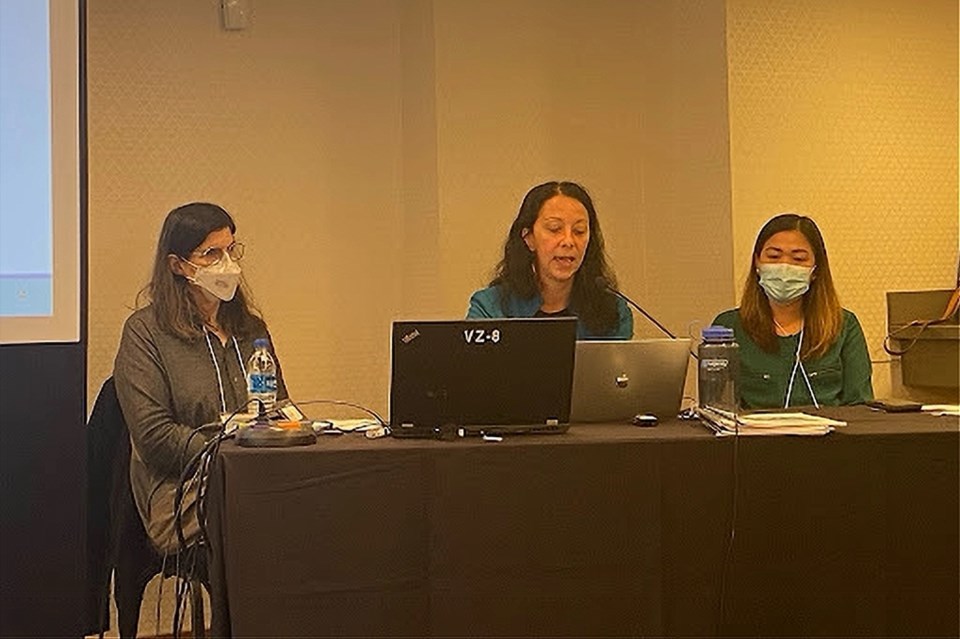Three years into the government’s Open Work Permit for Vulnerable Workers (VWOWP) program, migrant workers and advocacy groups say it not only has failed to protect migrant workers but, in many cases, is retraumatizing them.
The program was introduced in 2019 as a way to protect migrant workers facing abuse at the hands of their employers by providing them an “open work permit” which allows them to look for work with other employers.
During a session on the failures of the program at the 24th Metropolis Canada Conference in Vancouver, British Columbia, on March 24, a panel led by the Migrant Workers Centre (MWC) discussed what they say are “disconcerting trends” from Immigration, Refugees and Citizenship Canada (IRCC) officers with respect to processing applications for a program meant to protect victims of abuse.
“We noticed a great deal of inconsistency and confusion around what constitutes abuse despite the fact that there’s guidance on the IRCC website,” Amanda Aziz, a lawyer at the Vancouver-based Migrant Workers Centre, explained.
“There was also a lack of flexibility and sensitivity in terms of looking at these applications and a lack of acknowledgement that the applicants in these situations are vulnerable, as per the name of the permit.”
According to an MWC report released Wednesday, immigration officials adhered to a limited scope of what constitutes financial abuse and blatantly disregarded psychological abuse unless vulnerable workers provided a significant amount of evidence.
In 97 per cent of applications examined under the study, foreign workers experienced some form of financial abuse from their employer, such as being forced to work overtime without pay, denied payment of wages stipulated in their contract, or coerced to pay recruitment fees in order to gain employment.
Immigration officials often accepted unpaid wages and unreasonable working hours in worker applications, but the collection of recruitment fees — a violation of the B.C. Employment Standards Act — was largely ignored.
A system meant to help vulnerable workers adds a great burden on victims
In some cases, financially abused workers were targeted for removal from Canada based on information provided in their application.
As a migrant worker, Carlos, who uses a pseudonym for his own safety, experienced psychological abuse, paid $7,000 in recruitment fees, and worked 12-to-15-hour days for meagre pay.
As a new temporary worker in Canada, Carlos placed trust in his employer and an immigration consultant to guide him in the immigration process so that he could stay in Canada legally.
In return, he was misled to work in the country without a valid permit. The IRCC relayed this information to the Canada Border Services Agency, which later issued a removal order.
“I feel like I was a criminal,” Carlos said during a press conference on Wednesday.
“I feel like I have been treated unfairly and I’m being punished for being taken advantage of by my immigration consultant and my employer.”
At the conference, Aziz also noted that when migrants were called to do an interview for their VWOWP application, some immigration officials scrutinized workers with “very harsh questioning” that displayed a lack of a trauma-informed approach to working with abused migrant workers.
“[We saw] an interview style that’s not considering that you’re talking to somebody who has probably been through a very significant amount of abuse and exploitation and may not be able to recount everything that’s happened to them in the way that you want them to,” Aziz said, citing interview notes.
Migrant workers dismissed, abusive employers unpunished
Abused workers who successfully obtain an open-work permit are typically only allowed to work for 12 months. For workers to remain in the country after that time, they must find a new employer to sponsor them via an employer-restricted work permit, re-exposing them to further potential abuse since they are dependent on their employer to maintain the right to live in Canada.
Mary Grace De Guzman, board chair of the Migrant Workers Centre, said that when she sought to extend the six-month permit she received as a victim of human trafficking in 2018, the IRCC initially refused her application.
“A six-month victim temporary resident permit is not enough for us. It’s not enough to heal from the trauma,” De Guzman said during the conference.
“And why do they want me to be sent home and they’re tolerating [my] employer? Why are a lot of workers sent home and don’t get justice?”
When a work permit is approved for a vulnerable migrant worker under the program, employers are required to face a compliance investigation from the IRCC.
In reviewing the applications of migrants for the VWOWP, the Migrant Workers Centre concluded that these investigations are often not administered by officials promptly.
Aziz highlighted that the MWC has often seen workers coming from the same employer apply for an open work permit, submitting allegations that they experienced the same kind of abuse. While the MWC report did not address compliance from employers, there’s skepticism on whether these investigations are taking place.
“In our experience, it is not happening,” Aziz said.
The IRCC provides lists of employers who failed the compliance investigation on adequate labour rights and standards under the Temporary Foreign Worker Program or International Mobility Program. The list outlines 580 non-compliant employers from June 2016 to March 2022.
Calculating the average fines from the list from January to March 2022, each employer fined paid around $13,000.
A total of 2,481 people applied for the VWOWP program from June 2019 to July 2021. “Of those, 2,345 were processed by IRCC, and the approval rate was 57.1%,” according to MWC’s report.




